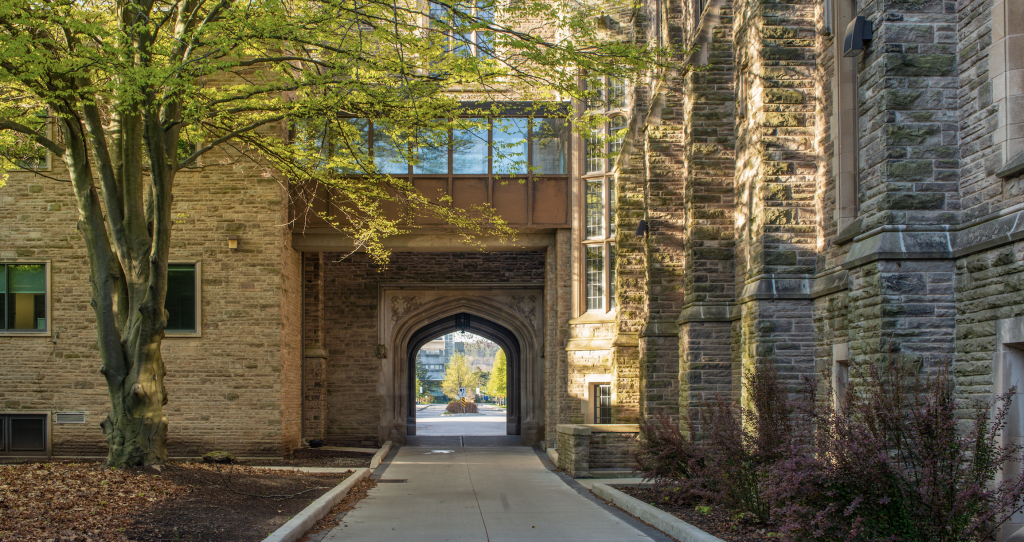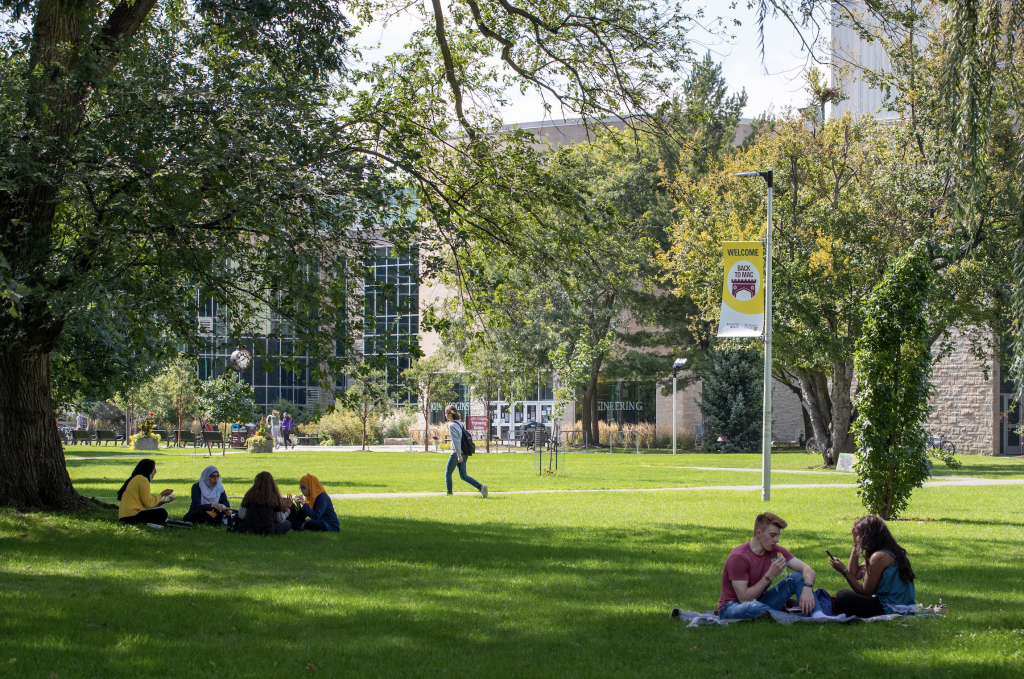Central Programming work is designed to support a broad range of needs across different fields and disciplines. In the coming year, the MacPherson Institute will continue to support instructors with centralized programming in the core mandate areas. Many of the central programming programs and functions are consistent year after year, however, this work is always evolving and adapting to the needs of McMaster’s teaching and learning community.
Planned Contributions for Central Programming
In the 2023-24 year, the MacPherson Institute will be working on a number of initiatives to address these needs and a few of these key projects are outlined below.
- Review and refine support for sessional instructors
- Explore alternative assessment and generative artificial intelligence (AI)
- Develop Graduate Supervision resource
- Continue mandatory, paid TA training, teaching refinements and observations, teaching dossier reviews, EDUCATN courses and new faculty programming.
- Develop specific anti-racist framework and support for IQAP reviews and new program development
- Create new resources for Indigenous and anti-racist pedagogy
- Work with the Equity and Inclusion Office regarding essential learning requirements for Accessibility for Ontarians with Disabilities (AODA) and Protection from Sexual Exploitation and Abuse (PSEA)
- Continue support for self-study development and undergraduate site visits, student feedback sessions, new program proposals, and cohort learning sessions.
- Examine equity, diversity and inclusion best practices within awards criteria and processes
- Continue support for the Partnered in Teaching and Learning Grants
- Explore opportunities to promote Student Partners programming in the local context
- Continue support for research on teaching and learning study design and methods, courses on research on teaching and learning, Leadership in Teaching and Learning Fellowships and the Student Partners Program.
- Develop new Ed Tech Discovery Stations and Engagement Series programming
- Provide guidance on developing quality online and blended courses as part of the Digital Learning Framework
- Provide consultation, guidance and mentorship for intensive online courses
- Continue to support for open educational resources, MacVideo, the MI Studio and effective use of digital technology in teaching.
- Provide project support for a review of the institutional Learning Management System
- Support implementation of the Course Outline Portal project (Simple Syllabus)
- Complete renovations to the MacPherson Institute classroom space
- Explore the use of a chat service for implementation in Avenue to Learn
- Contine review and integrations of third-party tools with the LMS and support for users with the LMS.

Planned Contributions for the Faculties
Every year the MacPherson Institute meets with the deans or associate deans from each of the six faculties, the dean of Graduate Studies, and the director of the Arts & Science program. These meetings are an opportunity to report back on supports and services that have been provided to each of these stakeholders. This activity also presents an opportunity to discuss strategic initiatives within each faculty and program for the year ahead.
In the 2023-24 year, the MacPherson Institute will be working on a number of initiatives to address individual needs and customized support for these faculties and programs. Several of these key projects are outlined below.
- Support the further pedagogical integration of equity and justice in the Arts & Science curriculum.
- Consult and collaborate on enhancing equity, diversity, inclusion, and accessibility in teaching and learning, particularly as they relate to assessment.
- Provide pedagogical research consultation support on The Pivot curriculum and for Engineering instructors more broadly.
- Facilitate an Instructional Skills Workshop for new instructors.
- Provide support for the application of universal design for learning in clinical and academic environments.
- Partner with McMaster Education Research, Innovation, and Theory Program (MERIT) to lead a session on generative AI in the next MERIT Rounds series.
- Collaborate with the Faculty to finalize the Humanities Digital Learning Strategy.
- Consult with departments and instructors on integrating universal design for learning into programs and courses.
- Lead the New Faculty Mentorship Program.
- Contribute to the Anti-Racism, Inclusion and Equity in the Science Undergraduate Curriculum Committee.
- Provide developmental support for programs and instructors seeking to build or update online courses.
- Advise on diverse approaches to the assessment of teaching beyond peer evaluation and student experience surveys.
- Provide support around the assessment of graduate teaching.
- Explore a collaborative specialization with the Teaching and Learning Certificates of Completion Program.

Planned Contributions to the Partnered in Teaching and Learning Strategy
With the completion of the MacPherson Institute’s 2019-2022 Strategic Plan and with additional recommendations provided by the External Reviewers in the fall of 2022, the MacPherson Institute explored the many inter-connected strategies with connections to teaching and learning at McMaster University. This work has enabled the MacPherson Institute to identify areas where its support and partnership would be valuable. In collaboration and partnership with other units with strategic priorities connected to teaching and learning, the MacPherson Institute will explore opportunities to lead, partner, or contribute to particular projects and activities. Key strategic projects are outlined below.
Identify land-based educational opportunities for Indigenous learners.
- Conduct an environmental scan to assess the current and potential state of Indigenous-informed education and decolonization
Implement initiatives that respond to the intersection of equity, diversity and inclusion and teaching and learning strategies.
- Develop supports and workshops related to equity, diversity and inclusion in curriculum development, quality assurance and other areas of teaching and learning
Develop strategies to ensure diverse perspectives and expansive ways of knowing are respected and valued.
- Finalize and launch the Indigenous Education Primer and develop an implementation plan with accompanying resources
Design, implement and evaluate structures that enable students to be active partners in the learning process engaged through peer support, mentorship, teaching, research, and community learning.
- Consult with campus partners interested in adopting student partnership on the philosophy and parameters of student partnership
- Explore models for increasing engagement of student partners at curriculum and program levels
Emphasize inclusive excellence in teaching.
- Update and launch a revised Inclusive Teaching website that includes resources on accessible teaching, anti-racist pedagogies, and decolonization
Refine policies and processes to demonstrate that teaching is valued and recognized as a professional practice.
- Identify plans to support Faculty initiatives related to valuing and recognizing teaching and professional practices (e.g. faculty-specific teaching awards; updating or refining how teaching is evaluated at department or Faculty levels; advancement in teaching streams)
Review how teaching is evaluated and refine policies and processes to ensure a multi-faceted approach to evaluation is implemented.
- Research and revise the measurement tool for student course experience survey (previously student evaluations of teaching) and make recommendations on the implementation of that tool
- Provide input on ways in which teaching-related policies are at odds with valuing and recognizing teaching as a professional practice based on summaries of campus conversations, literature and expertise
Build a culture that values innovative, experimental and playful mindsets.
- Organize the Innovations in Education Conference in 2023 with a consideration to how risk-taking and experimentation could be incorporated and review existing grant and fellowship calls for opportunities to embed experiments and play
- Develop plans for an incubator space for experimentation with established and emerging educational technologies in online and physical teaching and learning environments
- Through an MI-Libraries partnership, McMaster OER Committee, expand grants and programming to encourage the exploration of new teaching approaches using OER and open pedagogies
Develop meaningful, authentic assessments that promote learning and explore opportunities to reduce the use of high-stakes exams where appropriate.
- Design and deliver custom workshops and supports related to alternative assessment and impacts of AI-generated writing
Develop best practices for learning that are focused on the intentional consideration and integration of on-campus learning spaces (classrooms, labs, studios), online learning spaces, and community spaces for learning.
- Develop and implement individual and cohort training and support on the use of video and audio for teaching and learning using the MI studios
Design new physical and virtual spaces to be universally accessible, meaning they are designed to be supportive, barrier-free, mental health positive, and adherent to policies relating to health, safety, accessibility, and inclusion while respecting diverse ways of knowing.
- Contribute to the hybrid teaching technology classroom standards project
Develop and implement a clear Digital Learning Framework that enhances and complements the face-to-face learning experience.
- Recommend revisions to teaching and learning policies with respect to educational technology priorities (e.g. course modality language, implementation of lecture capture)
- Develop and publish an online, hybrid and in-person course quality checklist for self-directed use by educators
- Update the Blended Learning Guidebook to support integration of online and blended elements in curriculum
- Design an educational technology incubator program to support educators in experimenting with new technologies and modalities
- Propose a plan to support the continued development of high-quality online courses at McMaster
Expand adoption and continually enhance teaching development opportunities for educators around student mental health, inclusion, accessibility and safety needs (e.g., course design, compassionate response to student needs).
- Support the development of training for graduate supervisors and graduate students related to teaching and learning and mental health
- In partnership with the School of Graduate Studies, facilitate the development of a student-authored proposal to establish a disabled graduate student educator network


